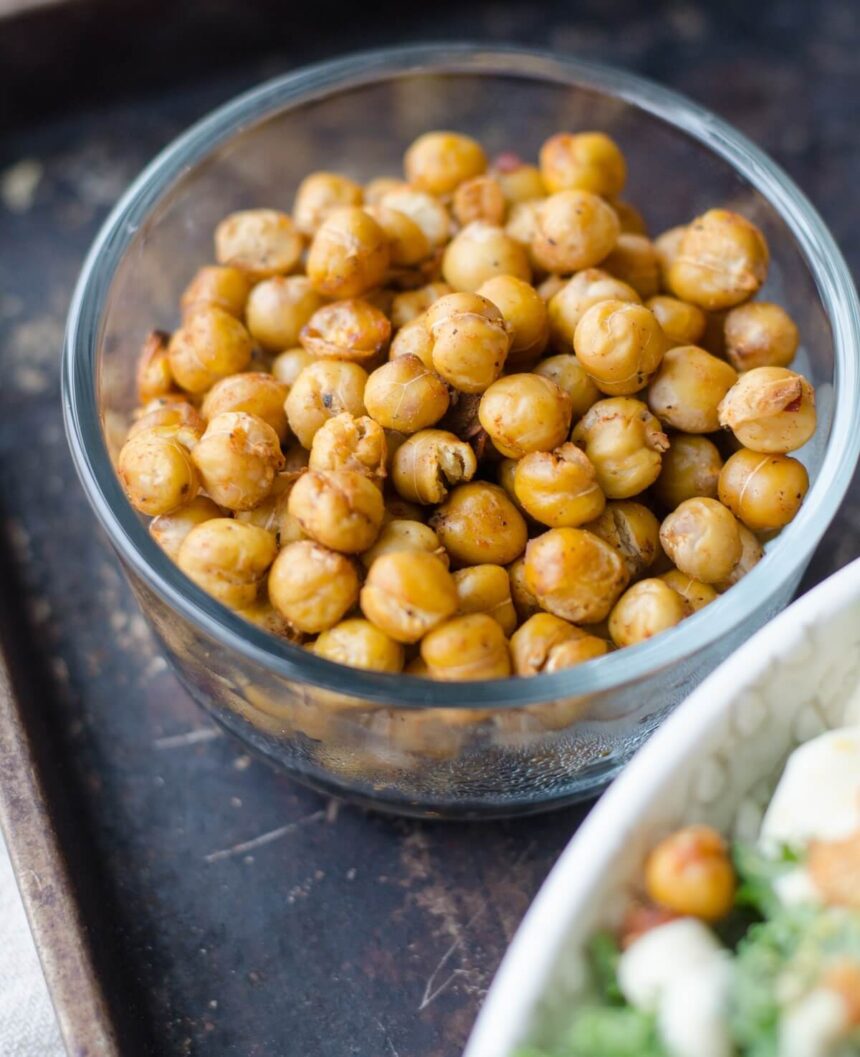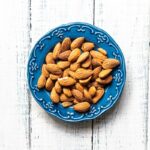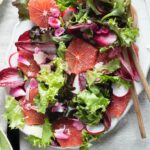Beans and legumes are often underrated foods that pack a huge nutrition punch for even a small quantity. Many experts agree that simply adding some legumes to your daily diet adds tens of health perks. In fact, the popular Mediterranean diet is often claimed to be one of the healthiest diets out there, partially due to its richness when it comes to legume intake.
But when it comes to beans and legumes, in general, is there one type of bean that tops others for its nutritional profile? Which ones are the healthiest beans, if we’d have to pick one? We spoke with nutrition experts to find out which beans may be the best pick if you want to choose the “ultimate bean”.
Beans With the Highest Protein
All beans are excellent plant-based protein sources. Due to their high protein content, many beans have become staples in the plant-based food industry, helping to substitute for meats.
But which beans have the most protein of them all? It turns out soybeans are the highest protein beans and top all others with an impressive nutrition profile.
“Soybeans are unique for being one of the very few plants that are a complete source of protein, meaning they provide all the essential amino acids that are needed for human health,” says Sheri Berger, RDN, CDCES, a registered dietitian and nutrition consultant for Health Insiders.
According to the USDA nutrient database, 1 cup of cooked soybeans contains over 30 grams of protein.
And since soybeans can be used in many different forms, like tofu, tempeh, miso, soy milk, or edamame, it’s a versatile plant-based protein source that’s easy to incorporate into your diet. As a complete protein, soybeans take the spot as the highest protein beans out there.
Edamame is not just high in protein but packs many other health benefits, too. “Soy consumption, particularly in the form of edamame beans, carries a multitude of potential health benefits, including cognitive health improvement, cardiovascular disease and cancer risk reduction, depression prevention, diabetes management, fertility enhancement, anemia prevention, inflammation reduction, and alleviation of menopause-related symptoms,” says Kelsey Costa, MS, RDN, a registered dietitian and nutrition consultant for Consumer Health Digest.
However, if you’re looking for some other alternative high-protein beans, there are plenty of options. Here are some of the beans with the highest protein content:
- Lentils – Lentils are a versatile legume with an impressive nutrient profile. They offer approximately 18 grams of protein per cooked cup and are also a good source of iron, folate, and fiber.
- Black beans – Black beans are a staple in many Latin American dishes and pack around 15 grams of protein per cooked cup. They are also rich in antioxidants, which help combat inflammation in the body.
- Split peas – Split peas contain about 16 grams of protein per 1 cup. It also contains a high amount of soluble fiber, which can assist with lowering bad cholesterol.
- Pinto beans and navy beans – Pinto beans and navy beans contain about 15 grams of protein per 1 cup. Both have some impressive health benefits: for example, navy beans can boost the immune system, decrease inflammation, and improve certain neurological symptoms.
Which Are the Most Nutritious Beans in General?
All beans have many health benefits, but if we’d have to pick, which are the most nutritious beans? It turns out there are some winners in this category, too.
Yelena Wheeler, a Registered Dietitian Nutritionist and health writer for the National Coalition on Health Care (NCHC), especially highlights lentils and chickpeas. “Lentils are anti-inflammatory and contain antioxidant properties, while chickpeas are low on the glycemic index and assist with blood sugar management,” she explained.
Sheri Berger also believes in the power of the chickpea, saying: “While all beans are healthy, garbanzo beans stand out for their folate content. According to the USDA nutrient database, a ½ cup serving of garbanzo beans provides 35% of the daily value (%DV) for folate. A diet rich in folate is especially important for women who are trying to conceive as sufficient folate helps to prevent neural tube defects in an unborn fetus.”
Lentils are also a fantastic source of polyphenols which are plant compounds that help to reduce inflammation. According to a 2022 review, polyphenols help to improve cholesterol numbers, blood pressure, inflammation, and insulin resistance.
Dr. Sharmela Devi G., dietitian-nutritionist at MACS Clinic, brought out kidney beans and navy beans in addition to chickpeas. “From a nutritional standpoint, all beans have their benefits. However, kidney beans are an excellent source of soluble fiber, which helps lower cholesterol levels and regulate blood sugar.”
“Navy beans may be small in size, but they pack a punch when it comes to nutrition. They are an excellent source of manganese, which plays a role in bone health and metabolism, and also provide a good amount of iron,” she followed.
Health Benefits of Eating Beans
When trying to figure out the healthiest beans, the truth is that all beans are healthy in one way or the other. From a high protein and fiber content to many other nutritional benefits, beans are an excellent way to upgrade your diet.
There’s no reason to micromanage nutrition and try to find the most nutritious beans or the highest protein beans since all beans come with some health benefits.
Here are some of the main reasons why you may want to eat more beans (especially soybeans), as described by Kelsey Costa, a registered dietitian nutritionist (RDN).
- Cognitive protection: Soy consumption has been associated with reducing the risk of cognitive decline as isoflavones present in it can enhance mental functionalities like nonverbal memory and verbal fluency. Some studies also suggest that it can be beneficial for cognitive functions post-menopause, although its long-term effects need further exploration.
- Improved cholesterol: Soy protein holds the potential to decrease levels of low-density lipoprotein (LDL), or “bad” cholesterol, in a person’s blood, which contributes to heart health. Its fiber and antioxidant content can also positively affect cardiovascular health, offering a healthier alternative to full-fat dairy products. Numerous studies suggest that consuming beans and other legumes can help reduce low-density lipoprotein (LDL), or “bad cholesterol,” which, in turn, can lower the risk of heart disease.
- Cancer prevention: Despite controversies regarding soy’s impact on breast cancer, the American Cancer Society states that soy doesn’t increase the risk of breast or other cancers. In contrast, soy consumption may considerably lower the risk of prostate cancer in males and possibly confer some protection against breast cancer.
- Good source of folate: Edamame, a form of prepared soybeans, contains folate, which is essential for DNA production and cell division, and its deficiency has been linked to depression. Folate can help manage mood, sleep, and appetite by regulating the production of the serotonin hormone.
- Promotes fertility: Iron, protein, and folate in plant-based foods like edamame can potentially promote fertility and reduce the risk of ovulatory disorders. These nutrients have been linked to a higher fertility rate, emphasizing the importance of a balanced diet for fertility issues.
- Helps prevent anemia: Edamame, being rich in iron, can prevent iron deficiency anemia, which affects energy utilization in the body. Iron is crucial for healthy energy levels and general well-being.
- Provides choline: Edamame provides choline, a nutrient that aids in sleep, muscle movement, learning, and memory and might protect against inflammation leading to cardiovascular disease.
- Helps with menopause-related issues: Soy isoflavones may alleviate menopause-related issues by slowing bone loss and improving bone strength. Women who received soy isoflavone treatment for 12 weeks reported fewer symptoms of menopause, including fatigue, hot flashes, depression, and irritability.
- Phytochemicals: Beans and other legumes contain phytochemicals, which are plant compounds that have antioxidant properties and can help protect against chronic diseases like cancer.
- Budget-friendly: Beans and other legumes are an affordable source of nutrition, making them a viable option for individuals on a budget or looking to save money on their grocery bills.
- Healthy digestion: Dr. Sharmela Devi G highlights that the fiber in beans promotes healthy digestion by adding bulk to stool and preventing constipation. It also helps maintain a healthy balance of gut bacteria.
From protecting your heart to helping your gut and contributing antioxidants, all beans and legumes are great choices to perk up your daily diet. Whether you’re looking for the highest protein beans or simply want to upgrade your diet, beans are nutritious and tasty at the same time.








